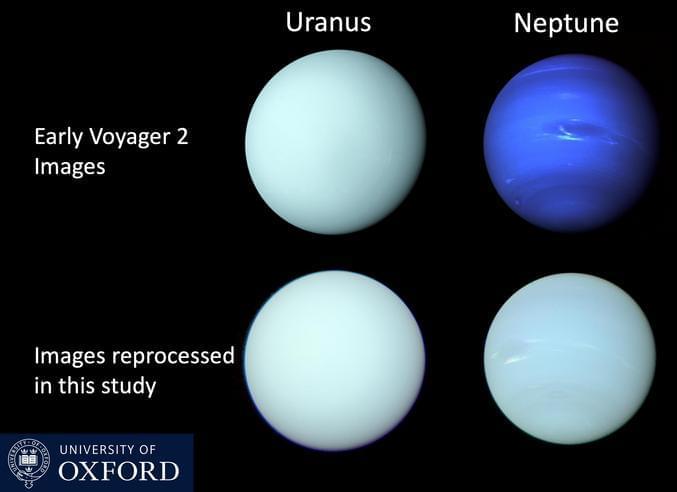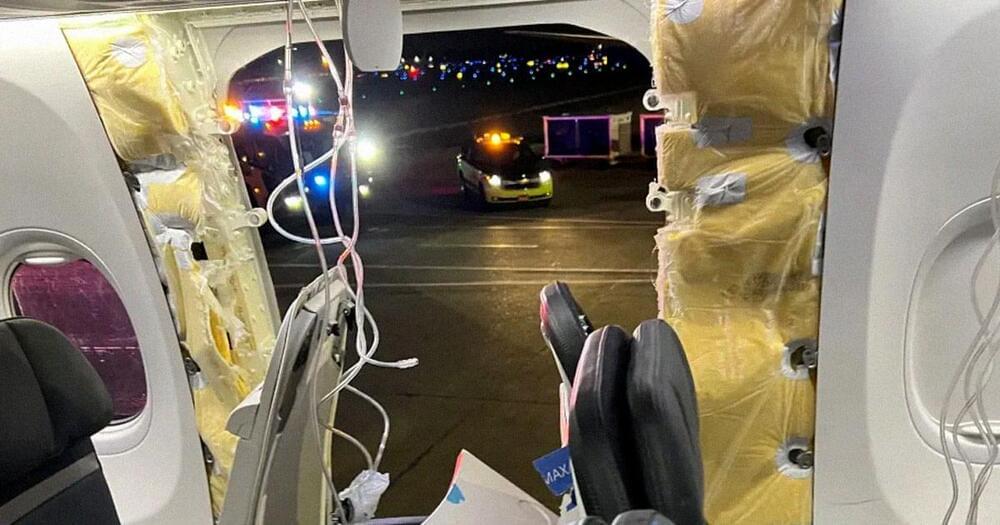The Wall Street bank estimates that specialized memory and storage products meant for AI chips will help chipmakers regain pricing power and raise earnings.



“The misperception of Neptune’s color, as well as the unusual color changes of Uranus, have bedeviled us for decades. This comprehensive study should finally put both issues to rest,” said Dr. Heidi Hammel.
In space, not everything is how it seems, and this might be the case with Uranus and Neptune, as a study scheduled to be published in February 2024 in the Monthly Notices of the Royal Astronomical Society examines how the colors of the two gas giants might be more similar that what NASA’s Voyager 2 spacecraft imaged in 1986 and 1989, respectively, as it flew past the gas giants during its mission. Originally, Voyager 2 imaged Uranus to exhibit a greenish-type color while Neptune appeared to be a strong blue, and this new study holds the potential to help scientists better understand how to estimate the true colors of planets throughout the cosmos.
“Although the familiar Voyager 2 images of Uranus were published in a form closer to ‘true’ color, those of Neptune were, in fact, stretched and enhanced, and therefore made artificially too blue,” said Dr. Patrick Irwin, who is a Professor of Planetary Physics at the University of Oxford and lead author of the study. “Even though the artificially-saturated color was known at the time amongst planetary scientists – and the images were released with captions explaining it – that distinction had become lost over time.”
For the study, the researchers used data obtained from the Lowell Observatory in Flagstaff, Arizona, between 1950 and 2016 and supplemental data obtained from NASA’s Hubble Space Telescope between 2016 and 2022 to determine that both Uranus and Neptune exhibit similar greenish-blue colors, with Neptune being slightly bluer than Uranus, which the team attributes to the planet’s possessing a thinner haze layer than Uranus. Additionally, the team might have also determined the color changes that Uranus experiences throughout its 84-year orbit, which they attributed to occurring during the planet’s equinoxes, when sunlight is directly over Uranus’ equator. When this happens, Uranus exhibits a slightly bluer color than during the rest of its orbit.

Chronic liver diseases such as hepatitis, liver cirrhosis, and hepatocellular carcinoma are a major cause of morbidity and mortality worldwide. Fibrosis—the thickening and scarring of connective tissue—plays a major role in these liver diseases but detection of fibrosis is limited to biopsy, which suffers from limitations including the risk of complications, sampling only a tiny fraction of the liver, and an inability to serially monitor disease progression due to its invasive nature.
To provide better diagnosis and treatment of chronic liver diseases, researchers are working to use non-invasive magnetic resonance imaging (MRI) to detect and quantify liver fibrosis throughout the entire organ, which would enable earlier detection and the ability to monitor disease progression as well as the effects of treatment over time.
Adapting MRI for detecting chronic conditions such as fibrosis involves the development of tissue-specific MRI contrast agents that target diseased tissue such as the collagen that accumulates in fibrotic liver. To develop such agents, researchers have been challenged to design and synthesize compounds that must find and bind the tissue target, provide a strong signal under MRI, and rapidly clear from the system to minimize any toxicity.

Summary: Scientists are using epigenetic clocks to reveal our biological age, a true marker of health.
A new study delves into the immune system’s role in understanding and improving the accuracy of these clocks. Their innovative approach sheds light on the relationship between immune cell composition and biological age, with a focus on the balance between naïve and memory immune cells.
This research has significant implications for aging insights, health interventions, and targeted cancer treatments.

YSM researchers are using deeplearning AI models to improve detection of patients at risk for multiple hospitalizations due to asthma and COPD.
Asthma and chronic obstructive pulmonary disease (COPD) are two of the most common lung diseases worldwide, and exacerbation of these conditions can negatively impact health and increase health care costs. A new study shows that deep learning, a type of artificial intelligence (AI) that uses large amounts of data to process information, can improve detection of patients with these diseases who are at increased risk for multiple hospitalizations.
The study was published Dec. 13, 2023, in the journal Respiratory Research.
In the study, researchers identified electronic health record (EHR) characteristics of severe asthma and COPD exacerbations. They then evaluated four machine learning models and one deep learning model in predicting hospital readmissions using EHR data. The researchers found that multilayer perceptron, a deep learning method, had the best performance.
When it comes to virtual worlds, one of the most challenging things to create (rivaling real trees, which Eric Ramberg, Chief Content Officer at Quixel, wrote is “the most requested type of asset”) is realistic human characters — especially their faces.
But Epic Games may have created the best solution so far. They have released a new character creation tool in Unreal Engine, called Creator, that helps you render an almost endless selection of near-photorealistic digital people.
“Up until now one of the most arduous tasks in 3D content creation has been constructing truly convincing digital humans. Even the most experienced artists require significant amounts of time, effort, and equipment, just for one character,” said Vladimir Mastilovic, VP, Digital Humans Technology at Epic Games. “That barrier is being erased through Unreal Engine, and we’re thrilled to introduce Creator.”
Powered by Blue Origin engines, United Launch Alliance’s Vulcan rocket launched Astrobotic’s moon lander on a lunar odyssey.

Thanks to the LIGO and Virgo detectors, researchers now regularly observe ripples in spacetime known as gravitational waves, which are caused by catastrophic cosmic events such as black-hole mergers, star explosions, or the big bang itself.
Gravitational waves are ripples in the fabric of spacetime that travel at the speed of light. These are produced in some of the most violent events in the universe, such as black-hole mergers, supernovae, or the Big Bang itself. Since their first detection in 2015, and after three observing runs, the Advanced LIGO and Virgo detectors have detected around 100 such waves.
Thanks to these observations, we are starting to unveil the black-hole population of our universe, study gravity in its most extreme regime and even determine the formation of elements like gold or platinum during the merger of neutron stars.
The LIGO and Virgo detectors are nothing but the most precise rulers ever built by humankind, able to measure the subtle squeezing and stretching of spacetime produced by gravitational waves.

